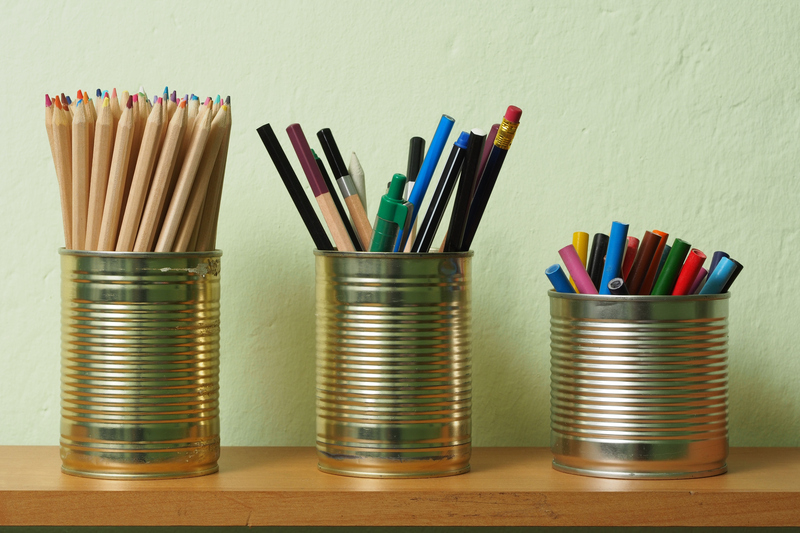Easy and Practical Plant Pot Disposal Ideas
Disposing of plant pots may appear straightforward, but doing so in an environmentally friendly and responsible manner can be a challenge. Whether you're a passionate gardener, an occasional houseplant owner, or someone simply looking to tidy up the garden shed, finding easy plant pot disposal ideas is essential both for you and the planet. In this comprehensive guide, we'll explore a variety of effective ways to get rid of your old or unused plant pots--while keeping sustainability and practicality in mind.

Why Responsible Plant Pot Disposal Matters
The majority of plant pots are made from materials like plastic, terracotta, ceramic, and even biodegradable substances. Each type requires a specific disposal approach to minimize environmental impact. Improper disposal of plant pots contributes to landfill waste and pollution, so learning practical plant pot disposal ideas is crucial for eco-conscious living.
The Environmental Impact of Improper Pot Disposal
- Plastic pots can take hundreds of years to decompose in landfills, releasing toxins into the soil over time.
- Ceramic and clay pots, while more natural, may not break down quickly and could take up unnecessary landfill space.
- Functional pots could have a second life but often wind up discarded prematurely.
Being aware of these points makes finding practical plant pot disposal options even more important for gardeners and homeowners alike.
Assess Before You Dispose
Before you toss out those old pots, consider whether they're truly at the end of their life. If they're just dirty or have minor cracks, you might still find them useful with a little creativity. Here are a few questions to ask yourself:
- Are the pots structurally sound?
- Could they serve another purpose?
- Are there local programs or organizations that could use them?
Often, the best way to dispose of plant pots is to avoid disposal altogether through reuse or donation.
Eco-Friendly Plant Pot Disposal Ideas
1. Reusing and Repurposing Plant Pots
Repurposing plant pots is by far the easiest and most sustainable way to deal with old containers. With a little imagination, plant pots can become more than just a vessel for flowers and houseplants. Here are a few creative ideas:
- Storage Bins: Use clean pots to organize garden tools, kids' toys, or craft supplies.
- Seed Starters: Small pots are perfect for germinating seeds indoors before transplanting.
- Decorative Containers: Customize pots with paint or mosaic tiles for household decoration.
- Bird Baths or Feeders: Shallow ceramic or terracotta pots can be turned into charming bird baths, or feeders using a little DIY magic.
- Gift Planters: Place a beautiful new plant in an old pot and gift it to a friend or neighbor.
*Don't forget*: Upcycling plant pots offers endless options to get creative and reduce waste!
2. Donating Old Plant Pots
Many garden centers, nurseries, schools, and community gardens are happy to accept donated plant pots--especially if they're in good condition. Here's how you can donate your pots for an extended useful life:
- Contact local garden centers or nurseries and ask if they accept pot donations for reuse.
- Post offers on neighborhood websites, such as Nextdoor, Facebook Marketplace, or Craigslist.
- Donate to local schools, community gardens, or nonprofit organizations running greening projects.
This not only keeps pots out of landfills but also helps organizations working on tight budgets.
3. Recycling Plant Pots
Recycling is often the best plant pot disposal method for plastic containers that are no longer usable. However, recycling options vary depending on the material. Here's what you should know:
- Plastic Pots: Check the recycling number (usually on the bottom of the pot). Many are made from polypropylene (PP5), and some community recycling programs accept them.
- Nursery Take-Back Programs: Some large garden retailers (such as Home Depot, Lowe's, or local nurseries) offer pot recycling bins for customers.
- Ceramic and Terracotta Pots: These generally can't be recycled curbside, but check with specialist or construction recycling centers.
- Biodegradable Pots: These can often go directly into compost if labeled as compostable, but be sure to double-check guidelines.
*Tip:* Always rinse out pots and remove non-recyclable elements (stickers, labels, wires) before recycling for a smoother process.
4. Composting Biodegradable Plant Pots
With the rise of sustainable gardening, more growers use biodegradable pots made from materials like coconut coir, peat, paper, or cow manure. These pots are specifically designed for landfill avoidance.
- You can plant many of these pots directly in the ground along with your seedlings, where they decompose naturally over time.
- Alternatively, add broken-down pots to your compost pile, ensuring they meet composting standards (no synthetic additives or coatings).
*Remember*: Not all "biodegradable" pots are truly compostable, so always verify material types before composting.
Disposal By Pot Material: The Best Strategies
Plastic Plant Pot Disposal
Plastic pots are the most common--and also the most challenging--when it comes to proper disposal. Here are your best options:
- **Upcycle or Reuse**: See if local schools or community projects could use them.
- **Nursery Pot Recycling**: Use retail drop-off points or special community collection events.
- **Municipal Recycling**: Double-check with your curbside collector. Some programs ban black plastic because automated sensors can't "see" it.
- **Eco-Bricking**: In rare cases, plastic pots can be used to create eco-bricks for construction projects.
Ceramic and Terra Cotta Pot Disposal
Ceramic and terra cotta are durable and aesthetically pleasing, but can be tough to dispose of. Try the following:
- **Garden Mulch**: Smash into small pieces and use as mulch or in the base of large planters to improve drainage.
- **Garden Walkways**: Crushed pottery fragments can also become decorative paths.
- **Art Projects**: Schools and artists may welcome broken pots for mosaics.
- **Construction Recycling**: Some centers accept pottery in their construction debris bins; call ahead to confirm.
Metal and Decorative Planter Disposal
While less common, metal and ornate decorative pots require a different approach:
- **Scrap Metal Dealer**: Many accept clean, rust-free metal pots for recycling.
- **Reuse or Donate**: Antique stores or community theaters may use unique, decorative pieces as props.
Tips for Safe and Hygienic Plant Pot Disposal
Regardless of the disposal method, always keep safety and cleanliness in mind. Here's what to do:
- Wash Thoroughly: Clean pots with mild soap and water to remove residual soil, roots, or potential plant diseases.
- Disinfect Before Donation: If donating to an organization, a quick rinse with diluted bleach solution helps prevent the spread of pests and diseases.
- Handle Broken Pots Carefully: Wear gloves to protect from sharp ceramic or plastic edges.
What to Avoid When Disposing of Plant Pots
While it may be tempting to throw all pots in the nearest trash can, there are several practices to steer clear of:
- Avoid Burning: Never burn plastic pots, as this releases toxic fumes harmful to both people and the environment.
- Avoid Landfilling When Possible: Landfill space is precious, and many pots can be reused or recycled instead.
- Don't Compost Non-Biodegradables: Only compost pots labeled as compostable or biodegradable.

Frequently Asked Questions About Plant Pot Disposal
Are all plastic plant pots recyclable?
No, not all plastic plant containers are recyclable everywhere. Black plastic is particularly difficult for recycling plants to process, so check your local guidelines.
What should I do with broken plant pots?
Broken pots can be smashed for use in garden beds, drainage, or art projects. Crushed ceramics make excellent mulch, while plastic pieces should be placed in the appropriate recycling bin if accepted.
Can I plant directly into a biodegradable pot?
Absolutely! Most biodegradable pots are designed for full planting. They decompose as the plant grows, feeding the soil and reducing waste.
Where can I find a plant pot recycling program?
Check with local garden centers or look for community recycling events. National retailers such as Home Depot and Lowe's often run plant pot drop-off programs, especially in spring.
Conclusion: Choose the Best Plant Pot Disposal Method for You
By considering these easy and practical plant pot disposal ideas, you can reduce your ecological footprint while keeping your home and garden tidy. Remember, reuse and donation are the most sustainable choices, followed by proper recycling and composting for appropriate materials.
- Repurpose creatively whenever possible
- Donate pots to gardens, schools, or friends
- Recycle according to material and local regulations
- Compost biodegradable pots for the greenest option
With these plant pot disposal solutions, you'll take an environmentally friendly approach each time you update your plant collection. Happy gardening!